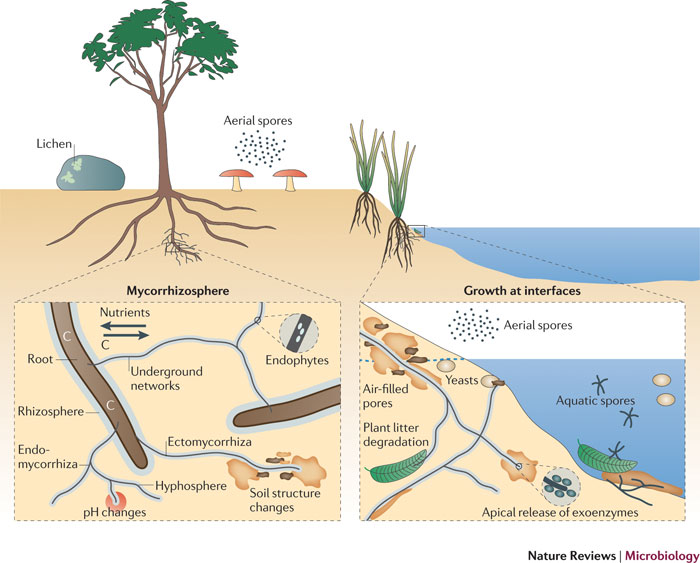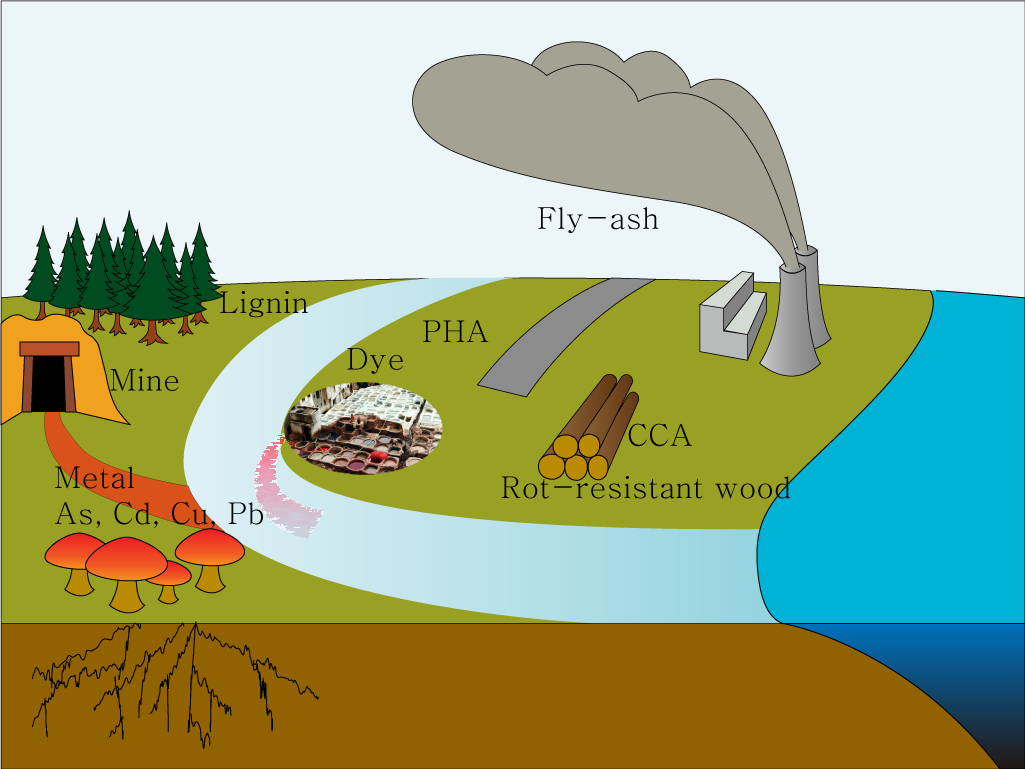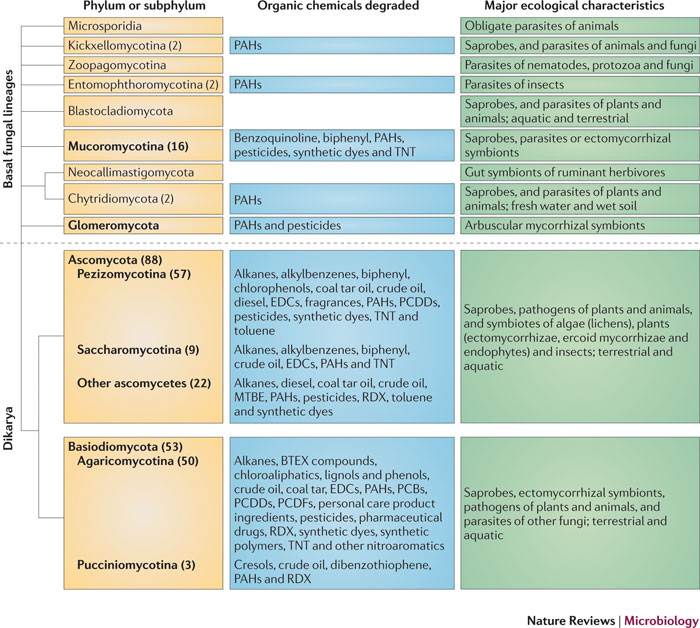From mycopedia
(Difference between revisions)
(→Polutions in environment) |
|||
| Line 38: | Line 38: | ||
= Polutions in environment= | = Polutions in environment= | ||
[[File:Polution.png|none|thumb|650px|Polutions in environment]] | [[File:Polution.png|none|thumb|650px|Polutions in environment]] | ||
| + | ==Ligninolytic fungi == | ||
| + | |||
| + | PAHs , benzene/toluene/ethyl benzene/xylene (BTEX) ,synthetic substituted aromatics | ||
| + | |||
| + | *[[Polycyclic Aromatic Hydrocarbons ]] | ||
| + | |||
| + | *[[Dioxins ]] | ||
| + | |||
| + | *[[Polychlorinated biphenyls ]] | ||
| + | |||
| + | *[[Cholorophenols ]] | ||
| + | |||
| + | |||
| + | == KUC fungi == | ||
| + | |||
| + | *[[Anthracene]] | ||
| + | *[[Phenanthrene]] | ||
| + | *[[Fluoranthene]] | ||
| + | *[[Pyrene]] | ||
| + | |||
| + | [[File:Organic chemicals.jpg|none|thumb|650px| | ||
| + | |||
| + | |||
| + | From the following article: | ||
| + | |||
| + | Untapped potential: exploiting fungi in bioremediation of hazardous chemicals | ||
| + | |||
| + | Hauke Harms, Dietmar Schlosser & Lukas Y. Wick | ||
| + | |||
| + | Nature Reviews Microbiology 9, 177-192 (March 2011) | ||
| + | |||
| + | doi:10.1038/nrmicro2519 | ||
| + | ]] | ||
= Enzymes for mycormediation = | = Enzymes for mycormediation = | ||
Revision as of 16:43, 5 April 2013
[edit]

Mycoremediation is a process of using fungi to degrade or detoxify contaminants in the environment.
- Materials for Fungal Biodegradation and Biodeterioration
| Wood | Plastics | Library materials |
| Wooden artifacts | Wool | Wall paintings |
| Stored paper | Wrapping papers | Electroinsulating materials |
| Textiles | Glass surfaces | Coal |
| Leather | Concrete | Ground waste rubber materials |

Typical habitats of terrestrial and aquatic fungi, and some of their ecological features. From the following article: Untapped potential: exploiting fungi in bioremediation of hazardous chemicals Hauke Harms, Dietmar Schlosser & Lukas Y. Wick Nature Reviews Microbiology 9, 177-192 (March 2011) doi:10.1038/nrmicro2519
Ligninolytic fungi
PAHs , benzene/toluene/ethyl benzene/xylene (BTEX) ,synthetic substituted aromatics
KUC fungi
=

